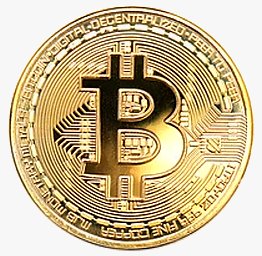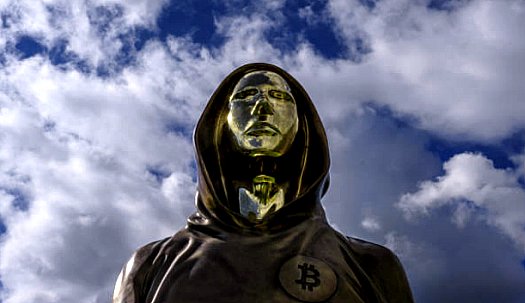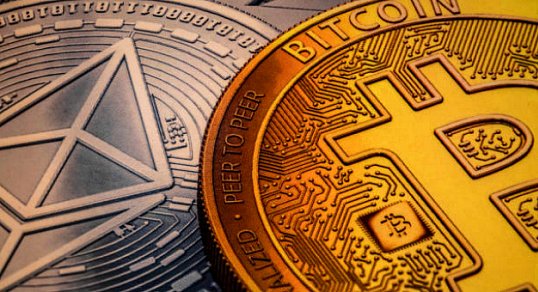Accredited InvestorsAltcoinAnatoli UnitskyAnti-Money Laundering (AML) In CryptoAPIArbitrageArtCoin TokenArticle DirectoryASICAuction Terminology GlossaryBasics of Stock Market InvestingBear MarketBest Crypto Payment Provider In the WorldBitcoinBlockchainBlockchain ConfirmationBlockchain Consensus MechanismBlockchain ForkBlockchain GlossaryBored Ape Yacht ClubBuild a Business That OutperformsBull MarketBuying SkyWay SharesByzantine Fault Tolerance (BFT) ExplainedCasascius CoinCentral Bank Digital Currency (CBDC)Centralized Crypto ExchangeCoinCoinsetCold WalletCollateralCommodity Futures Trading Commission (CFTC)Cross-Chain TechnologyCRUCrypto ExchangeCrypto GlossaryCrypto JokesCrypto Terms to KnowCrypto TickerCryptocurrencyCryptographyCryptojackingCryptounit BlockchainCryptounit GlossaryCryptounit ProgramdApp (Decentralized Application)Dead CoinDecentralized Exchange (DEX)Decentralized Finance (DeFi)Difference Between Bitcoin and EthereumDifferent Ways of Investing MoneyDigital CurrencyDistributed LedgerDo Your Own Research (DYOR)Dollar Cost Averaging (DCA)Dow Jones Industrial Average (DJIA)EncryptionERC-20ERC-721EthereumEvoScentFear Of Missing Out (FOMO)Fear, Uncertainty and Doubt (FUD)Fiat MoneyFNT Fintech CompanyGenesis BlockGlobal Unit PayGlossary of Banking TermsGlossary of Business TermsGlossary of Financial TermsHalvingHODLHot WalletHow Do I Start InvestingHow Rich is Satoshi Nakamoto?How to Create a BlockchainHow to Find Private InvestorsHow to Get Into FintechHow to Program Smart ContractsI Am Thrilled to Be a Part of This Global ProjectInitial Coin Offering (ICO)Initial Public Offering (IPO)Initial Token Offering (ITO)Innovation Basalt TechnologyInnovative Transportation TechnologiesInternational Bank Account Number (IBAN)Investing in Gold Mining StocksInvesting in Gold MiningJagerJoy of Missing Out (JOMO)Know Your Customer (KYC)LedgerLiquidity in CryptocurrencyMaker and Taker Fees in Crypto TradingMarket Capitalization (Market Cap)Meme CoinMetal Credit CardMetaMaskMillenials Now Have Access to Generational WealthMy Best Investment EverNew Digital EvolutionNFT GlossaryOff-Chain TransactionsOn-Chain TransactionsOpen Edition NFTPeer-to-Peer (P2P)Personal Loan GlossaryProbably the Best STO on the MarketProof of Stake (PoS)Real Estate Glossary of TermsReal Estate Investing GlossaryRebase TokenSecurities and Exchange Commission (SEC)Security Token ExchangesSecurity Token Offering (STO)Soulbound Decentralized Identities for Security TokensSoulbound ID Launch by Stobox Proves a SuccessSoulbound TokensStoboxStock Market GlossaryTestimonialsTether Platform and Token (USDT)UnitEx ExchangeUnitsky String TechnologiesUNTBUSDUValidatorWe Started Investing When We Were 25What are Blue Chip NFT?What are Blue Chip Stocks?What are Crypto Assets?What are Crypto Smart Contracts?What are CryptoPunks NFT?What are Digital Assets?What are Digital Collectibles?What are Gas Fees?What are Gas Wars?What are Hashmasks?What are Non Fungible Tokens?What are Non-Sufficient Funds (NSF)?What are Soulbound Tokens (SBT)?What are Stablecoins in Crypto?What are Transactions Per Second (TPS)?What are Utility NFTs?What are Utility Tokens?What Does Burning Crypto Mean?What Does Diamond Hands Mean?What Does Paper Hands Mean?What Does To The Moon Mean?What Does WAGMI Mean?What Happened to Satoshi Nakamoto?What is a 51% Attack?What is a Baby Boomer?What is a Backlink?What is a Banner?What is a Barcode?What is a Bid-Ask Spread in Crypto?What is a Block in Blockchain?What is a Block Reward?What is a Blockchain Address?What is a Blockchain Node?What is a Blockchain Oracle?What is a Blog?What is a Bond?What is a Bot?What is a Broker?What is a Business Accelerator?What is a Cash Cow?What is a Commercial Bank?What is a Commodity?What is a Con?What is a Credit?What is a Credit Limit?What is a Credit Rating?What is a Crypto Airdrop?What is a Crypto Bridge?What is a Crypto Scam?What is a Crypto Token?What is a Crypto Wallet?What is a Crypto Whale?What is a Crypto Winter?What is a Cryptocurrency Public Ledger?What is a Cryptocurrency Roadmap?What is a DAO?What is a Dark Pool?What is a Day Trader?What is a Dead Cat Bounce?What is a Default?What is a Derivative?What is a Digital Credit Card?What is a Fiscal Quarter?What is a Fungible Token?What is a Governance Token?What is a Grace Period?What is a Hard Fork?What is a Hot Wallet?What is a Hybrid Blockchain?What is a Hybrid PoW/PoS?What is a Joint Account?What is a Market Cap?What is a Merkle Tree in Blockchain?What is a Mining Farm?What is a Nonce? What is a PFP NFT?What is a POS System?What is a Prepaid Card?What is a Private Blockchain?What is a Private Key?What is a Public Blockchain?What is a Public Key?What is a Reserve Currency?What is a Ring Signature?What is a Routing Number?What is a Rug Pull in Crypto?What is a Safe Deposit Box?What is a Satoshi?What is a Security Token?What is a Seed Phrase?What is a Shitcoin?What is a Sidechain?What is a Soft Fork?What is a Spot Market?What is a State Bank?What is a SWIFT Code?What is a Tax Identification Number (TIN)?What is a Time Deposit?What is a Transaction Account?What is a Variable Interest Rate?What is a Virtual Assistant (VA)?What is a Virtual Card?What is a Virtual Currency?What is a Visa Card?What is a Whitelist in Crypto?What is a Whitepaper?What is Accounts Payable (AP)?What is AMA in Crypto?What is Amortization?What is an Accrual?What is an ACH Transfer?What is an Actuary?What is an Addendum?What is an Algorithm?What is an Angel Investor?What is an Annuity?What is an Asset?What is an ATM?What is an Atomic Swap?What is an Audit?What is an Avatar?What is an EIN?What is an Embargo?What is an Entrepreneur?What is an IDO (Initial Dex Offering)?What is an Interest Rate?What is an Internet cookie?What is an Investment Bank?What is an NFT Drop?What is an NFT Floor Price?What is an Ommer Block?What is an Orphan Block?What is an Outstanding Check?What is an Overdraft?What is Artificial Intelligence (AI)?What is B2B (Business-to-Business)?What is B2G (Business-to-Government)?What is Bartering?What is Bitcoin Dominance?What is Bitcoin Pizza Day?What is Blockchain Immutability?What is Blockchain Used For?What is BRICS?What is Business-to-Consumer (B2C)?What is C2C (Customer to Customer)?What is Capitalism?What is Catfishing?What is CFD Trading?What is Check Kiting?What is Cloud Mining?What is Communism?What is Content Marketing?What is Decentralization in Blockchain?What is DeFi in Crypto?What is Delisting?What is Depreciation?What is Digital Marketing?What is Diversification?What is Double Spending?What is Dumb Money?What is Dumping?What is Earnings Per Share (EPS)?What is Economics?What is Email Marketing?What is Equity?What is Etherscan?What is Fintech?What is Foreign currency?What is Forex?What is Fundamental Analysis (FA)?What is GameFi?What is Generative Art NFT?What is Gwei?What is Hard Currency?What is Hash Rate?What is Hashing in Blockchain?What is Inflation?What is Initial Game Offering (IGO)?What is Interest?What is Interest Income?What is Mainnet?What is Mastercard?What is Metaverse in Crypto?What is Mining in Cryptocurrency?What is Minting NFT?What is Mobile Banking?What is Money Laundering?What is NFT Alpha?What is NFT Metadata?What is NFT Rarity?What is NGMI Meaning?What is Nominal Interest Rate?What is Online Banking?What is Open-End Credit?What is OpenSea NFT Marketplace?What is Personal Identification Number (PIN)?What is Play-to-Earn?What is Polygon?What is Proof of Authority (PoA)?What is Proof of Work (PoW)?What is Public Key Cryptography?What is Pump and Dump?What is Quantum Computing?What is Refinancing?What is Retail Banking?What is Ripple?What is Sharding?What is Slippage in Crypto?What is Smart Money?What is Solvency?What is Soulbound ID?What is SSL?What is Staking in Cryptocurrency?What is Technical Analysis (TA)?What is Testnet?What is the Ask Price?What is the Better Business Bureau (BBB)?What is the Bid Price?What is the Dark Web?What is the InterPlanetary File System (IPFS)?What is the Gold Standard?What is the Lightning Network?What is the Prime Rate?What is the Sandbox?What is the Secondary Market?What is the World Bank?What is Tier 1 Capital?What is Tokenomics?What is TRC-20?What is Universal Banking?What is Unspent Transaction Output (UTXO)?What is Usury?What is Volatility in Crypto?What is Wash Trading?What is Web3?What is Whisper?What is XRP?What is Zero-Knowledge Proof (ZKP)?Who is Beeple?Who is Satoshi Nakamoto?Who is Vitalik Buterin?Why Tokenization is a Safe HavenWhy You Should Try Your Hand at Trading
Bitcoin
- Home
- Crypto Glossary
- Bitcoin
The digital currency known as Bitcoin is operated through a distributed computer network (nodes). However, in a larger sense, the term "Bitcoin" is frequently used to refer to a number of other concepts, including a protocol, a decentralized public ledger, a digital currency, and the vast ecosystem that includes all of these. These functionalities do, however, differ in several important ways.

Bitcoin was created by a person (or group of people) under the alias Satoshi Nakamoto. The plan was to develop a one-of-a-kind digital payment system that would enable borderless financial transactions to take place without the use of intermediaries such as banks or governments. Bitcoin is very resistant to assaults and fraud because to the distributed architecture provided by blockchain technology and cryptographic methods.
What is Bitcoin?
Bitcoin is the name of a peer-to-peer (P2P) digital money. It is also known as bitcoin (with a lower "b") or simply BTC. The term "Bitcoin" refers to a type of digital currency that is secured using cryptographic methods. The first Bitcoin block, also known as the genesis block (or block 0), was mined on January 3, 2009, making it the first cryptocurrency to exist.
Second, blockchain refers to the decentralized public ledger used for Bitcoin. Although they are closely connected, Bitcoin and blockchain are distinct ideas. The framework that enables trustless and secure broadcasting and recording of Bitcoin transactions is maintained by the blockchain technology.
Because the blockchain system is supported by computer code and mathematical algorithms, the term "trustless" in this sense refers to the fact that it does not require any type of trust to operate. As a result, the Bitcoin blockchain functions as a decentralized digital ledger that makes all validated BTC transactions available to the public.
Last but not least, the protocol that is continuously developed as open source software was also referred to as Bitcoin. To prevent any additional misunderstandings, the original Bitcoin client software was formally renamed to Bitcoin Core in 2014. Bitcoin Core is a piece of open source software that has received contributions from all around the world.
Is Bitcoin Safe?
Bitcoin's security uses a code called SHA-256, made by the US government (US National Security Agency). It's nearly impossible to break because there are too many possible codes to try.
Sometimes, people have had their bitcoin stolen from websites where they kept it, but the bitcoin system itself wasn't hacked.
If someone took control of more than half of all bitcoin computers, they could change the rules, but that's hard to do as there are more computers being added all the time.
The problem with bitcoin is that there's no one in charge, so if you make a mistake with your transaction or lose your password, you can't fix it.
In the future, powerful computers called quantum computers could be a problem for bitcoin's security. They work differently than regular computers and can do complex math problems quickly.
Short History
To understand bitcoin, it's important to know its history. Despite extensive investigation, the identity of the person or group who created bitcoin, known as Satoshi Nakamoto, remains unknown.
In 2008, a white paper was published online by Satoshi Nakamoto, introducing the principles of bitcoin. This paper combined cryptography and computer science to solve the problem of trust between online entities, who may be anonymous or located far from each other.
Satoshi Nakamoto created two main ideas: the bitcoin private key and the blockchain ledger. When you own bitcoin, you control it using a private key, which is a combination of random numbers and letters. Each private key is recorded on the blockchain ledger.
Bitcoin marked a major breakthrough in computer science by solving the problem of transferring value between two people online without a trusted middleman such as a bank. This allowed for financial transactions to occur globally without the involvement of banks, credit-card companies, lenders, or governments, creating the potential for a more efficient, free, and innovative financial system. In short, this is bitcoin.
Pros and Cons of Bitcoin
Bitcoin is a digital currency that offers several advantages, including cost-efficient transactions and fast speeds. When you own Bitcoin, you can transfer it quickly and easily, reducing the time and expenses associated with traditional transactions. Bitcoin transactions also provide privacy, as they don't contain personal information like your name or credit card number. Despite the fact that it's still possible to link a person to a certain wallet, transactions are generally more private than those made with a credit card.
Another advantage of Bitcoin is its decentralization, which means that it's outside the control of banks, governing authorities, and other third parties. Many investors prefer this type of currency because it offers an alternative to traditional banking systems, which can be subject to financial crises and economic recessions.
Investors who buy and hold Bitcoin believe that it has growth potential and that its value will grow as the currency becomes more widely accepted. However, Bitcoin's value can be very volatile and has experienced significant fluctuations in the past. For example, in 2022 its price was just under $17,000, down from over $47,000 per coin in the beginning of the year.
While the blockchain technology behind Bitcoin is considered secure, there have been several high-profile hacks, such as the one that took place on the cryptocurrency exchange Binance in May 2019, where more than $40 million in Bitcoin was stolen. It's important to note that Bitcoin is not protected by the Securities Investor Protection Corporation, which insures investors up to $500,000 in the event of a brokerage failure or theft of funds.
Regulation
Regulating Bitcoin, like any new technology, has been a challenge. The Biden administration aims to regulate Bitcoin, but at the same time, wants to avoid hindering its growth and economic benefits. President Biden has stated his intention to prevent illegal use of Bitcoin while supporting its development.
The United States has been particularly focused on regulating crypto overseas, including sanctioning cryptocurrency exchanges, individual wallets, and recovering payments made to criminals. There have also been calls for the creation of a central bank digital currency to better manage these sanctions.
As the world of Bitcoin and cryptocurrencies evolves, the regulations surrounding it will continue to change and evolve as well.
Should You Buy Bitcoin?
Investing in Bitcoin started to gain popularity as it became more well-known. In 2009 to 2017, platforms were created that made it easier to buy and sell Bitcoin. Its price started to go up as demand grew, reaching over $1,000 in 2017. People thought the price would keep going up, so they started buying and holding onto it. Short-term trading also became popular on these platforms.
However, in 2022 the price of Bitcoin went down. Some reasons for this drop include market problems caused by Covid and the war in Ukraine, as well as other cryptocurrencies and platforms experiencing problems. Despite this, some people were attracted to Bitcoin because of its rapid price increase in the past few years.
On December 31, 2019, Bitcoin was worth $7,167.52 and one year later it had gone up over 400% to $28,984.98. It hit a record high of $68,990 in November 2021 but then decreased over the next few months to around $40,000. In early 2022, the price continued to drop and has remained low for most of the year.
Whether investing in Bitcoin is a good idea depends on personal financial factors, risk tolerance, and investment goals, and it is always best to consult a financial professional before investing in cryptocurrency.
The Bottom Line
Bitcoin is a digital currency created to be used as an alternative to traditional currency. Since its creation, many other cryptocurrencies have been developed, and Bitcoin's popularity has grown.
Investing in Bitcoin is possible through cryptocurrency exchanges. However, it is important for investors to understand that Bitcoin can be a highly volatile investment and to carefully consider if it is a suitable option for their financial goals and risk tolerance.
Related Articles

Who is Satoshi Nakamoto?
The name Satoshi Nakamoto is believed to be a reference to the Japanese term for "intelligent," "clever," or "wise," and it is possible that the pseudonym was chosen to reflect the...

Cryptography
Cryptography is the art and study of mechanisms for secure communication.

Difference Between Bitcoin and Ethereum
The two most popular cryptocurrencies, Bitcoin and Ethereum are often compared due to their popularity and...

Genesis Block
The genesis block is the first block recorded on its respective blockchain network.
- Home
- Crypto Glossary
- Bitcoin